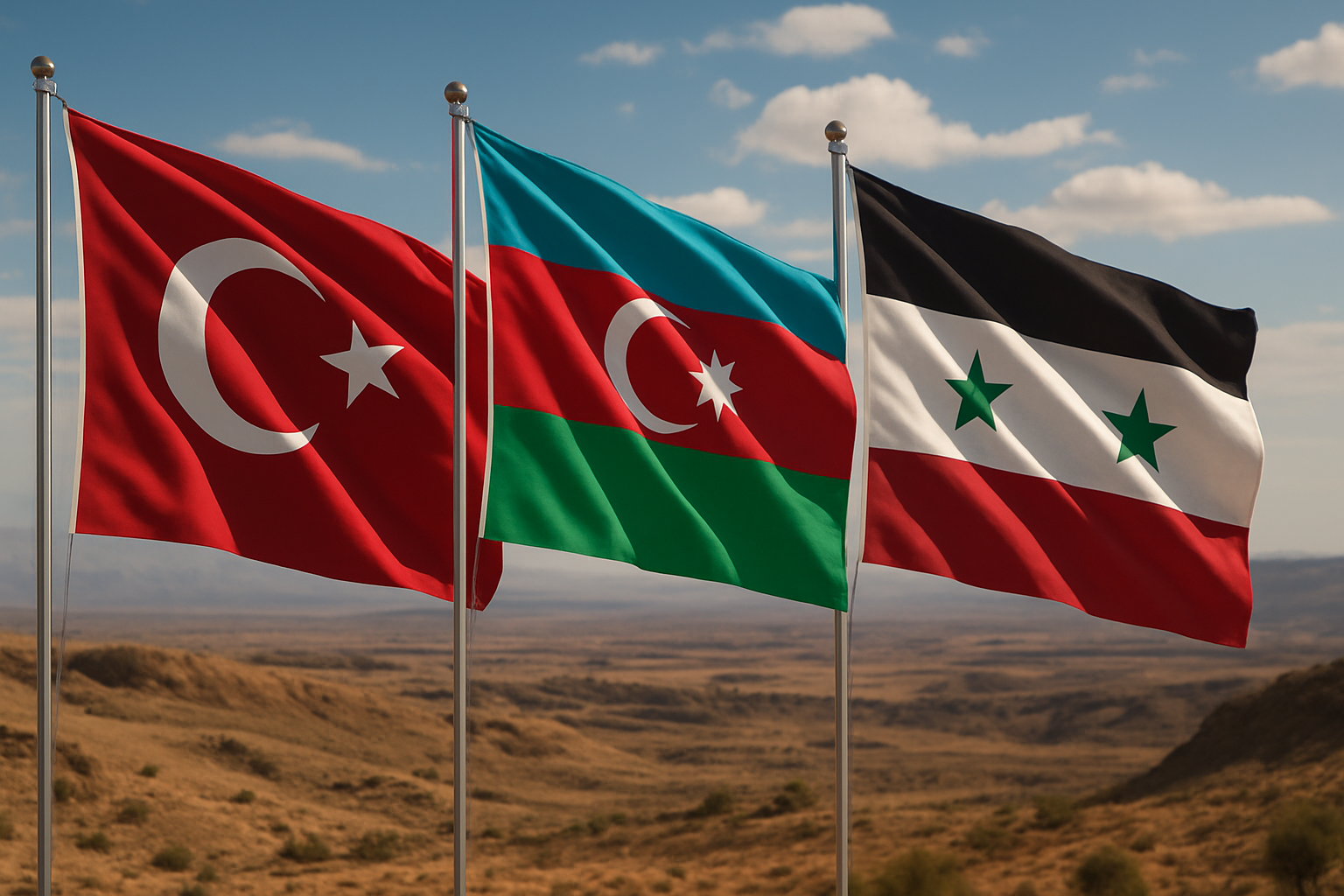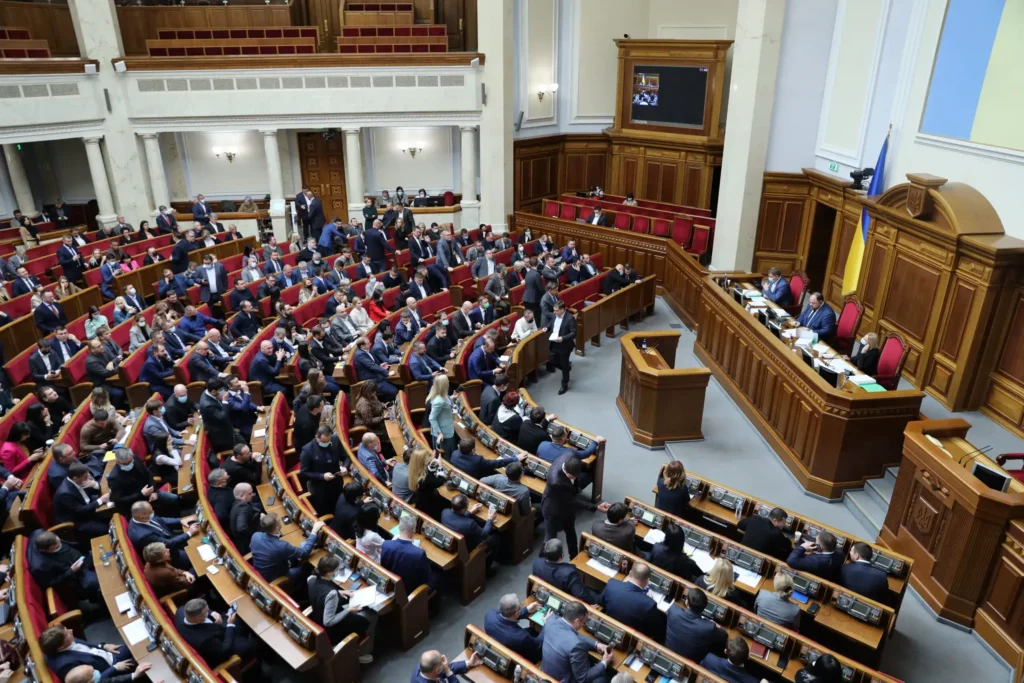Geopolitical Triangle “Turkey-Azerbaijan-Syria”: Kyiv should not stand aside
6 August 2025 15:37
august 2, 2025, became a symbolic date for a new geopolitical alliance in the Middle East – on this day, Azerbaijan began exporting natural gas to Syria via Turkey.
Gas will be supplied through the newly launched Kilis-Aleppo pipeline with a capacity of 6 million cubic meters per day. According to Turkish Energy Minister Alparslan Bayraktar, the volume of supplies will allow to provide energy to up to 5 million Syrian households annually.
This launch is not only an infrastructure but also a political act. It cements the de facto formation of a new regional alliance between Turkey, Azerbaijan, and Syria – an alliance that changes the balance of power in a region previously dominated by Russia and Iran.
Gas Diplomacy
The formalization of energy cooperation between Azerbaijan and Syria took place on July 14, 2025, in Baku. During the official visit of Syrian President-elect Ahmed al-Shar to Azerbaijan, a memorandum of understanding was signed between the Azerbaijani company SOCAR and the Syrian government.
This step was a continuation of Baku’s policy of supporting Syria, including humanitarian aid: on December 30, 2024, Azerbaijan was one of the first countries to send aid to Syrians through Turkey.
Baku consistently coordinates its actions in the Syrian direction with Ankara and emphasizes Turkey’s leading role in stabilizing Syria. Turkey, in turn, is gradually turning into the main ally of the new Syrian regime.
Читайте нас у Telegram: головні новини коротко
Turkish alliance: a new map of influence
In the geopolitical dimension, this gas project is part of a much broader Turkish strategy. Ankara is building its own system of alliances that covers the region. In the Caucasus, it is Azerbaijan, and in the Mediterranean basin, it is Turkish-controlled Northern Cyprus. Now, after the victory of the armed opposition in Syria, a new Syria is being added to this circle.
According to the Turkish newspaper Aydınlık, a large-scale security agreement will be signed between Turkey and Syria at the end of August.
It provides for the deployment of radar and air defense systems, as well as the use of drones.
Aydınlık writes that this agreement will be the first step towards the establishment of Turkish military bases in Syria.
One of the Turkish military sources, who wished to remain anonymous, said that there will be three of them: one in Palmyra, the second at the Tifor air base in the province of Homs, and the third at the Minnagh air base near Aleppo.
Advisory support will also be provided to the Syrian army and its capacity will be strengthened.
The Israeli website Ynet also reports that Ankara and Damascus are negotiating a joint defense agreement that will allow Erdogan to supply the Syrian army with light and heavy weapons, instructors, and high-level military advisors.
“Simply put, Turkey is preparing to fill the vacuum left by the withdrawal of Iranian security forces from Syria. Ankara wants a full-fledged defense cooperation agreement,”
– the newspaper adds.
Ukraine’s interest
It is strategically beneficial for Ukraine if Turkey strengthens its position in the region and more actively displaces Iran in the Middle East.
Iran, a key ally of Russia, supplies Moscow with kamikaze drones and helps it circumvent sanctions. Any strengthening of Iran in the region means strengthening Russia’s rear, both militarily and diplomatically. In addition, Iranian proxy groups (including Hezbollah in Lebanon and the Houthis in Yemen) are constantly fomenting conflicts in the region, distracting the West from the war in Ukraine.
Strengthening the new government in Syria is in Ukraine’s interest. The overthrow of Assad has paved the way for a dramatic foreign policy turnaround: Syria is increasingly distancing itself from Iran and demonstrating a willingness to limit its influence on its territory.
The new government, less dependent on Russian or Iranian patrons, could take a neutral or even cautiously pro-Ukrainian stance in the international arena. This would be of both symbolic and practical importance.
Of particular importance for Kyiv is the issue of Russian military bases in Syria, in particular in Tartus and the Hmeymim airbase. These facilities are a tool for demonstrating Russia’s power in the Mediterranean.
Moscow is negotiating with the new government to extend the basing.
However, if an agreement between Syria and Turkey is signed, Russian bases will probably be withdrawn from the country. For the Kremlin, this would mean another geopolitical defeat, while for Ukraine, on the contrary, it would be a victory.
Meanwhile, Ukraine has already benefited from close cooperation with Azerbaijan. At the end of July, Naftogaz Ukrainy signed the first agreement on the purchase of Azerbaijani gas with SOCAR. The gas is supplied via Turkey and the Balkan countries, in transit to the Ukrainian gas transportation system.
This supply is of strategic importance. Firstly, it strengthens Ukraine’s energy independence at a time when Russian gas transit has been completely halted. Second, it opens up new opportunities for long-term cooperation with Azerbaijan, an ally of Turkey and the new Syrian government.
The trilateral rapprochement between Turkey, Azerbaijan, and Syria is more than just a pragmatic energy project. It is the architecture of a new regional order based on close coordination, common economic interests, and ideological compatibility of the regimes.
While the traditional powers, Iran and Russia, are losing the initiative, a bloc of countries combining economic activity, military resolve, and political mobility is coming to the fore.
Ukraine should not remain a mere observer in the processes shaping the new architecture of the Middle East. The geopolitical triangle of Turkey-Azerbaijan-new Syria opens a unique window of opportunity for Kyiv. It is important not just to support these transformations from afar, but also to actively promote its own interests, form new partnerships, and push the aggressor not only from its own land but also from the international stage.
It’s time to act not on the periphery of big processes, but in their epicenter.
Asif Aliev









